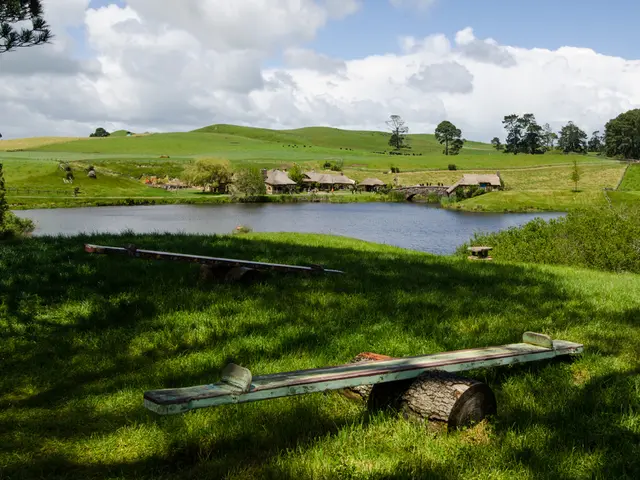District Heat System: An Overview
Schneverdingen, a city in the Heidekreis region of Lower Saxony, is taking decisive steps towards a greener future. The city has set a goal to be climate-neutral by 2045, and it's making significant strides in achieving this target.
The city's climate manager, Lara-Esther Backeberg, is leading the charge in communal heat planning. This planning is not only a legal requirement for central places like Schneverdingen from 2028 but also a key focus for the city's administration and politics.
In a recent development, the city will receive a 90% subsidy for the communal heat planning due to the federal government lifting the funding stop. This subsidy is expected to boost the city's efforts in transitioning from fossil fuels to renewable energies in its heat supply.
Volker Broekmans, a leading employee of DSK, recommends a district heating network as an economically necessary step. The city is considering a district heating network powered by geothermal or solar energy.
However, not all buildings in the city are suitable for individual heat pump solutions. Buildings built before 2000 often lack the necessary infrastructure for such systems. The city plans to draw conclusions about the entire city area based on the data gathered through the integrated neighborhood concept.
Meanwhile, the energy agency is organising the exchange with the responsible parties of the municipalities to facilitate this transition. By 2030, the city aims to have at least 80% of its electricity demand covered by renewable energy sources.
The city's focus on renovation needs shows promising results. Only one building in the city center has a high renovation need, while most houses show a low to medium need. Lara-Esther Backeberg, the city's climate manager, states that the need for renovation in the city center on a 54-hectare area is not as high as expected.
The city's plans for a greener future extend beyond its borders. Lower Saxony, of which Schneverdingen is a part, aims to be emissions-free by 2040. The Heidekreis region is in the preparation phase for this process, with Schneverdingen playing a significant role.
In the transition to renewable energy sources, it's important to remember that electricity is required to operate a heat pump. High consumption can reflect in increased costs if not generated mainly by a photovoltaic system. The installation of a heat pump requires a property renovation to keep consumption low.
The city's ambitious goals reflect a commitment to sustainability and a forward-thinking approach to climate action. With the right strategies and support, Schneverdingen is well on its way to becoming a model for climate-neutral cities in Germany and beyond.







